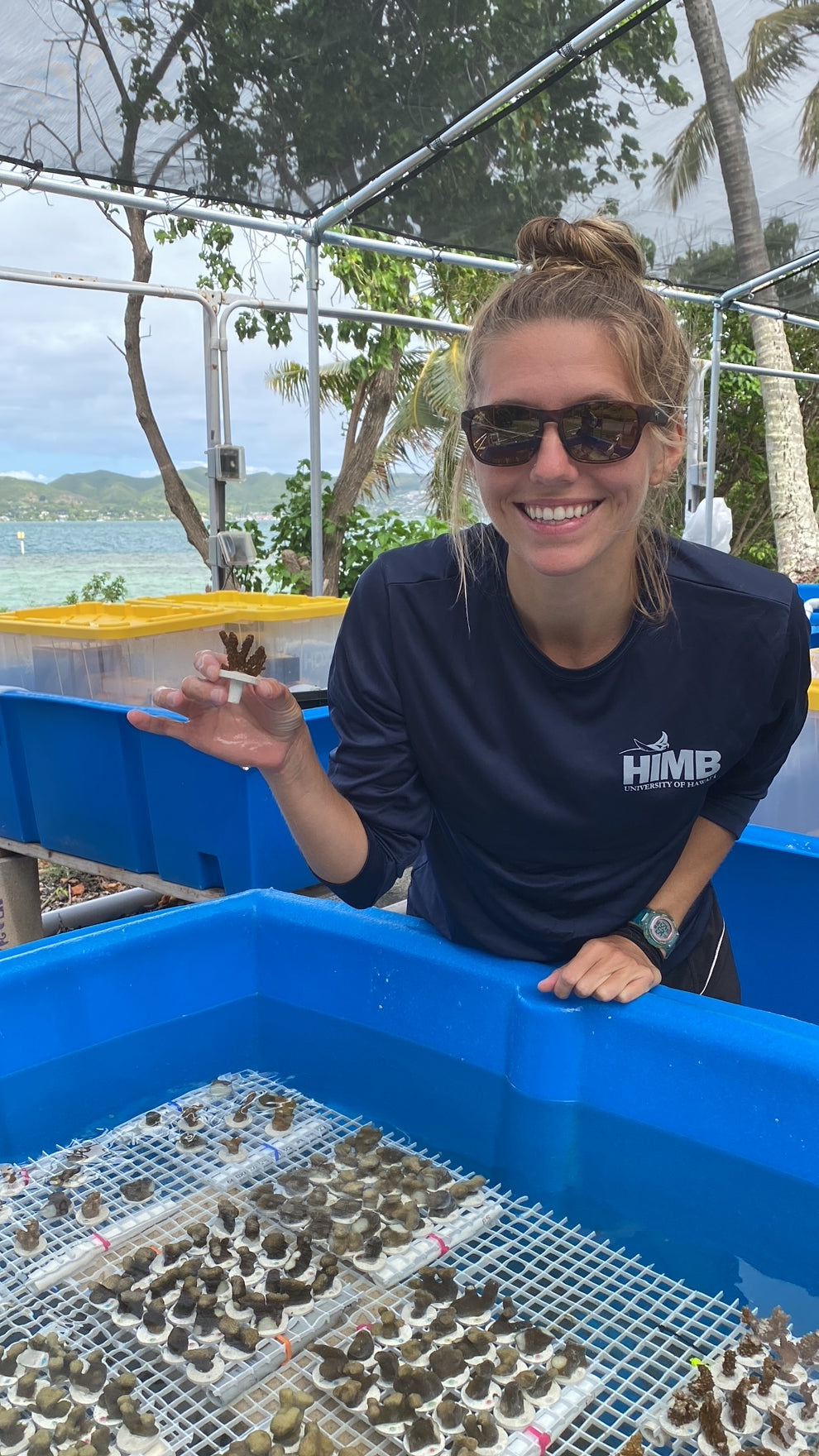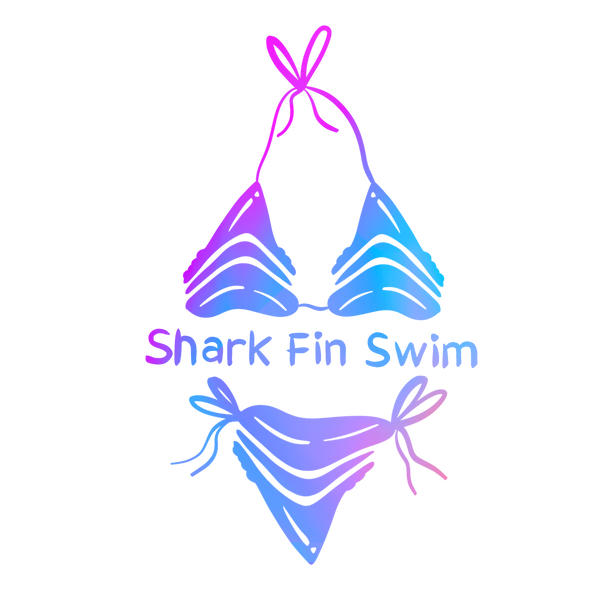
Meet a Marine Scientist with Jess!
Share
Get to Know a Marine Scientist!
Welcome to a new blog series with Shark Fin Swim. I’m Hope, the founder and ocean illustrator behind Shark Fin Swim. Our small business helps raise awareness for ocean conservation through our hand drawn colorful prints perfect for ocean lovers. Using eco friendly materials and production practices we are bringing ocean advocates a more sustainable option for swimwear. As a biologist and purpose driven small business owner this blog series is going to give you an inside look of what it’s like to be a Marine Scientists Biologists, Diver, Professional mermaid and so much more! Let’s meet our scientist for this week!
 find Jess on Instagram here!
find Jess on Instagram here!
Can you give us a brief introduction about you and what you do?
Aloha, my name is Jess! As a marine biologist and scuba instructor, I have achieved my childhood dream of becoming a mermaid :) I am currently a Ph.D. student at the Hawaii Institute of Marine Biology studying coral reef ecology, I am interested in how local nutrient enrichment and global climate change are interacting to impact coral reef resilience. I also own a small scuba diving operation called Liquid Cosmos Divers with my partner on the Big Island of Hawaii, we take small groups and specialize in marine education and conservation.
What sparked your passion for our oceans?
I can't think of a single moment that sparked my passion for the ocean, because this passion has always been there. Some of my earliest memories are playing in the pool all summer and wishing on stars every night to become a mermaid. I think I was born with salt water in my blood.

How did you land on Hawaii for your phd?
I moved to Hawaii at 22 as soon as I finished my bachelors degree at UC Santa Cruz. I walked into a dive shop the day I arrived and got a job! I took 5 years off between undergrad and grad school and spent nearly every day underwater. I am so glad that I did this because it allowed me to become intimately familiar with Hawaiian reefs and instilled a desire to return to school and study corals. I knew I wanted to study corals because they are the base of the coral reef ecosystem! We call them 'ecosystem engineers' because they literally are an animal that builds their own ecosystem. I completed my master's in Tropical Conservation Biology from UH Hilo, and while working on my master's I decided to take it a step further and go for my doctorate to be able to have the greatest impact on coral reef conservation that I possibly can.

As a dive shop owner and marine biologist do you have any input on how the diving community and eco tours can help raise awareness for conservation?
The dive community are great ocean stewards, we all dive because we love the ocean and want to see what is down there. It is really easy to raise awareness when you are taking people into the ocean, because it is pretty much impossible to visit a coral reef that hasn't been impacted by humans. I use opportunistic learning moments that present themselves on each charter to connect people with marine conservation. For example, when we pick up marine debris we discuss that threat, if we dive in an area that has been hit by coral bleaching we talk about climate change, if we visit an area where certain fish aren't present we discuss overfishing, and so on. My goal is to connect people to the reef and the threats that reefs are facing, once they experience it first hand it sticks with them. I like to think that I am slowly building up my own little marine conservation army!
How about how eco tours can have negative impacts on our oceans when they are not being run ethically?
There are tons of situations where the tourism industry is negatively impacting the ocean and its wildlife. Generally, this comes down to poor management which can lead to too many people in the water and/or wildlife harassment. Unfortunately, unless there are enforced protections and laws put into place, there is always going to be an exploitation of the marine environment. On the other hand, there are plenty of us that take marine conservation and animal welfare seriously! Don't be afraid to reach out to different diving or snorkeling companies and ask them about how they run their tours.
What’s one thing in your career that’s challenged you most?
Getting a Ph.D.! I believe a Ph.D. program is designed to push you to your intellectual breaking point, and you have to figure out how to adapt and stand up to the challenge. It isn't that hard every day, but there have definitely been moments that have pushed me. These moments are generally where the most growth happens though, so they are important to experience!
A lot of people get discouraged pursuing marine biology with the state of our political climate, environmental damage and it being a competitive field. What advice would you give an aspiring marine biologist?
We need you now more than ever!! One of the biggest challenges right now is funding, it was already really competitive to acquire research money but now it is even harder. However, that isn't to say that it doesn't exist! I think some qualities that most successful marine biologists have is excessive determination, a passion that cannot be dimmed, and creativity to finding their own path into this field. The other thing I think is important to note is that the ocean needs people in all fields fighting for her - we need engineers, writers, policymakers, artists, educators, communicators, etc working on the problems that the oceans are facing. 

